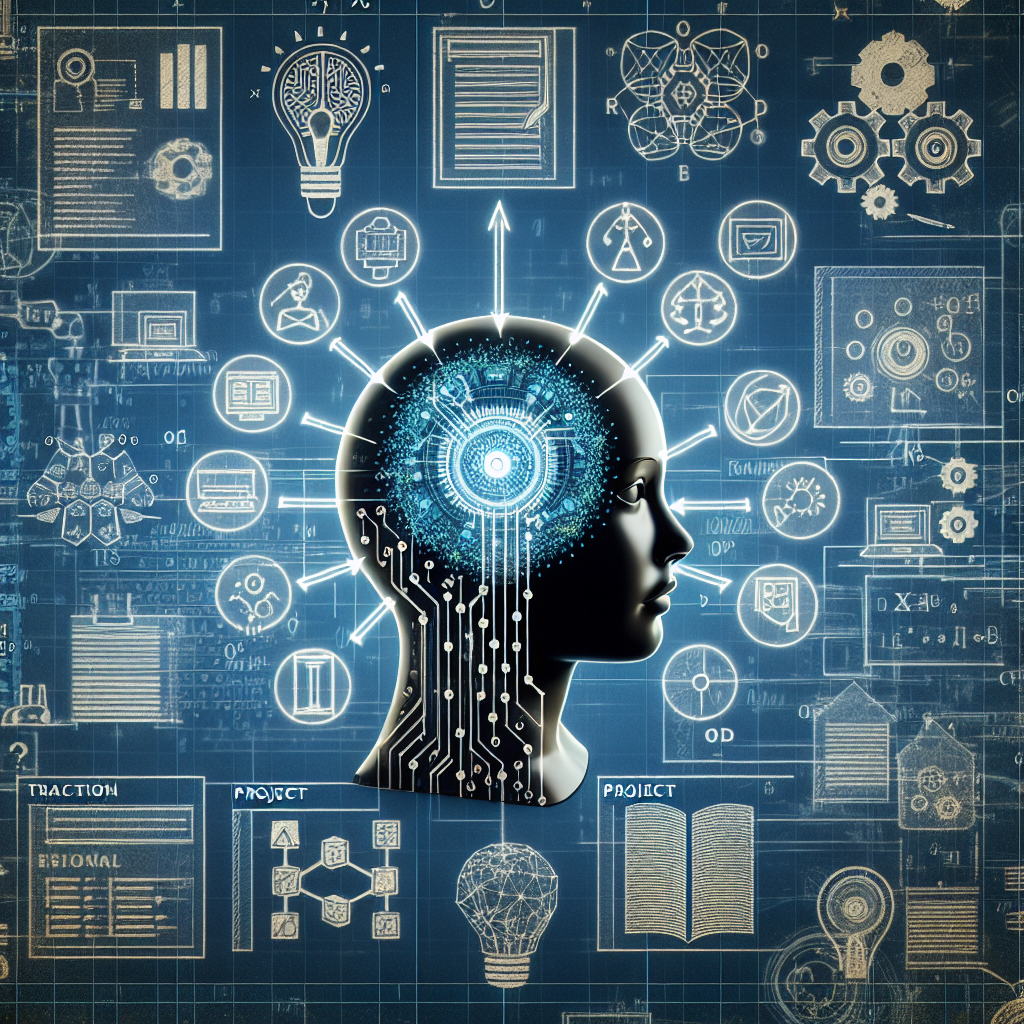Project-based assessment is a form of evaluation that focuses on students’ ability to apply their knowledge and skills to real-world situations. This type of assessment goes beyond traditional tests and quizzes, allowing students to demonstrate their understanding through the completion of projects or tasks that require critical thinking, problem-solving, and creativity. With the advancement of artificial intelligence (AI), project-based assessment is becoming even more relevant in education, as AI technology can help streamline the evaluation process and provide valuable insights into students’ performance.
AI has the potential to revolutionize the way assessments are conducted in education. By incorporating AI into project-based assessment, educators can leverage the power of machine learning algorithms to analyze student work more efficiently and effectively. AI can help automate the grading process, provide instant feedback to students, and identify patterns in student performance that may not be immediately apparent to human evaluators. This can help educators gain a more comprehensive understanding of students’ strengths and weaknesses, allowing them to tailor instruction to better meet students’ needs.
One of the key benefits of using AI in project-based assessment is its ability to provide personalized feedback to students. By analyzing student work in real-time, AI can identify areas where students are struggling and provide targeted feedback to help them improve. This can be especially beneficial for students who may be struggling with certain concepts or skills, as it allows educators to intervene early and provide additional support before students fall behind.
Another advantage of using AI in project-based assessment is its ability to provide more objective and consistent evaluations. Human evaluators may be prone to bias or subjectivity when assessing student work, leading to inconsistencies in grading. AI, on the other hand, can provide a more standardized evaluation process, ensuring that all students are assessed fairly and consistently. This can help reduce disparities in grading and ensure that students are evaluated based on their actual performance rather than other factors.
AI can also help streamline the assessment process, saving educators time and resources. By automating the grading process, AI can help educators focus more on providing meaningful feedback to students and less on the tedious task of grading assignments. This can help reduce the workload for educators and allow them to spend more time on instructional activities that directly benefit students.
Despite the many benefits of using AI in project-based assessment, there are also some challenges and considerations that educators should be aware of. One of the main concerns with using AI in assessment is the potential for bias in the algorithms used to evaluate student work. If the AI algorithms are not properly trained or calibrated, they may inadvertently discriminate against certain groups of students or produce inaccurate results. Educators must be vigilant in ensuring that the AI systems used for assessment are fair and unbiased, and that they do not inadvertently disadvantage certain students.
Another challenge with using AI in project-based assessment is the potential for technology glitches or errors. AI systems are not infallible and may occasionally produce incorrect results or malfunction. Educators must be prepared to address these issues and have backup plans in place to ensure that students are not unfairly penalized due to technical errors.
In order to successfully implement AI in project-based assessment, educators must also ensure that students are adequately prepared to engage with this technology. Students should be familiar with the tools and platforms used for assessment, and educators should provide training and support to help students navigate the process. Additionally, educators should communicate clearly with students about how AI will be used in assessment and what they can expect in terms of feedback and evaluation.
Overall, AI has the potential to transform project-based assessment in education, providing educators with valuable insights into student performance and helping to improve the evaluation process. By leveraging the power of AI, educators can provide more personalized, objective, and efficient assessments that better reflect students’ abilities and achievements.
FAQs:
1. What is project-based assessment?
Project-based assessment is a form of evaluation that focuses on students’ ability to apply their knowledge and skills to real-world situations. This type of assessment goes beyond traditional tests and quizzes, allowing students to demonstrate their understanding through the completion of projects or tasks that require critical thinking, problem-solving, and creativity.
2. How can AI be used in project-based assessment?
AI can be used in project-based assessment to automate the grading process, provide instant feedback to students, and identify patterns in student performance. AI can help streamline the evaluation process, provide personalized feedback to students, and ensure more objective and consistent evaluations.
3. What are the benefits of using AI in project-based assessment?
Some benefits of using AI in project-based assessment include personalized feedback for students, more objective and consistent evaluations, and a streamlined assessment process that saves educators time and resources. AI can help educators gain a more comprehensive understanding of students’ strengths and weaknesses, allowing them to tailor instruction to better meet students’ needs.
4. What are the challenges of using AI in project-based assessment?
Some challenges of using AI in project-based assessment include the potential for bias in the algorithms used for evaluation, technology glitches or errors, and the need to ensure that students are adequately prepared to engage with this technology. Educators must be vigilant in ensuring that AI systems used for assessment are fair and unbiased, and that they do not inadvertently disadvantage certain students.
5. How can educators successfully implement AI in project-based assessment?
To successfully implement AI in project-based assessment, educators should ensure that AI systems are fair and unbiased, have backup plans in place to address technology glitches or errors, and provide training and support to help students engage with this technology. Educators should communicate clearly with students about how AI will be used in assessment and what they can expect in terms of feedback and evaluation.

